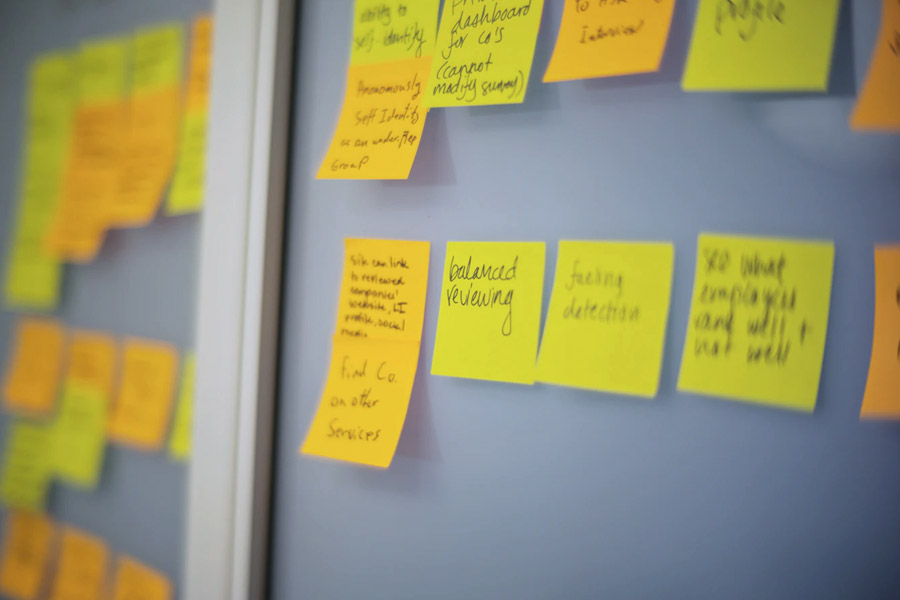So, from my own experiences as a second-year languages student, I have created a list to help you combat procrastination, particularly in the tough exam seasons.

1. Organise your time
First and foremost, when it comes to completing a task, you will need to have a plan of action. Whether it’s a full-blown colour coded planner or just a simple to-do list, you will be able to see a comprehensive list of the tasks that need to be completed. An added bonus is that you can see all of your deadlines and exams and set yourself some mini-milestones to break down when you want to have completed different sections by. Having a plan for each day will allow you to break it down so you know where your time is going; designate blocks of the day of a set amount of time for both work and relaxation.
2. Balance work with breaks
Anyone will tell you that would for hours straight just isn’t productive or effective – your brain needs a break now and then! I find 25-minute spurts of intense, immersive and uninterrupted work followed by a 5-minute break most effective. You can amend this to suit your personal preferences, for example, 45-minute work and a 15-minute break. This works by the countdown timer creating a sense of urgency in the brain that tricks it into thinking you are working to a looming deadline. Often, you will forget the timer is even there as you work intensely for that allocated time.
3. Your friends will still be there after exams
When everyone around you seems to be busy having a social life, it is natural to feel like you are being left out. It takes a lot of discipline to turn down invites out to do things, but you don’t have to outright refuse! You may just ask to do it on a different day when you have a break. Nobody’s saying you have to work 24/7 and never see anyone, but we all know how easy it is to see people as a way to not do your work. Exam season is one a few weeks, after all – they’ll still be there once it’s over!

4. Make use of the in-between times
Throughout the day, you’ll always find a time where you’re doing nothing, but could. Use the time meaningfully to complete short and easy tasks or act as baby steps towards completing the big task. For example, on the bus ride, you could be reading articles online for references to use in your essay, or when walking between classes you could be listening to your voice notes on a subject.
5. Your phone isn’t always your friend
In this day and age, it is inevitable that electronics are going to contribute to procrastination, whether that be streaming platforms or social media. To combat this and stay focused on the task at hand, try setting time limits on different apps that’ll prompt you when you’ve been on them for too long. Equally, setting your phone on do not disturb will stop notifications from flashing up. If you really want to go for it, you can delete any distracting apps altogether! Don’t worry though, you can always re-download it later.

6. Keep your body moving
Simply just by moving your body, you are stimulating the flow of blood. This doesn’t only have to be done through intense exercise at the gym, this could be done through the most mundane task such as having a shower, tidying your workspace, stretching, taking a walk or making a meal. The choice of movement is not what is important; the important thing is pumping the blood around your body to stimulate the brain out of a lethargic mode into one of drive and motivation. Sitting in the same chair all day isn’t going to help anybody.
7. Break the deadline down
How do you eat an elephant? One bite at a time! For example, you have coursework due in a month (4 weeks). You can set yourself a series of deadlines that by the end of the first week, you’ll have completed the research; by the end of week 2, you’ll have completed the first couple of paragraphs; by week 3, you’ll have completed the conclusion and critical references; by the end of week 4, you will have completed the bibliography and proof-read. And then you submit and the deadline is completed! Fool-proof, indeed!
8. Lay out tasks to be done visually
Sometimes, seeing what tasks are ahead of you visually can really help. If using post-it notes with each individual task that needs to be carried out laid around you, you can see what you have left, as well as having the satisfaction of ripping it up and throwing it away in the bin when you have completed it. Or you may prefer using actual piles of work rather than just small pieces of paper.

9. Reward yourself for the little achievements
We all know it, Netflix is more interesting than your textbook, but you also have a deadline due. So, commit to yourself that when you have reached a certain milestone of that deadline or completed it in its entirety, you will reward yourself by watching 1 hour of television. This delayed gratification will help to propel you forward, especially with hard tasks as you want to get to the relaxation, fun part, but first, you have to earn it.
10. Get out of your usual surroundings
Everyone tells themselves that they “work better at home” or can “concentrate more in bed”. Stop lying to yourself. You can’t truly get into work more in the same environment you’re used to relaxing in. Whether it’s a coffee shop, your library or wherever else you like to go, a change in environment will do you good! Even if it’s just leaving your bedroom to work in the kitchen, but getting out of the house and getting some fresh air is always preferable.

Combining work and study at university can be hard, but with focus and the right tools, you can do it! So with all that being said, I hope you find some of these tips helpful and wish you the best of luck this exam season!
Enjoy this blog? Why not read Top Brain Foods for Exam Season




